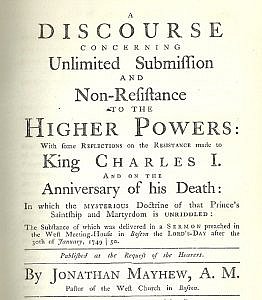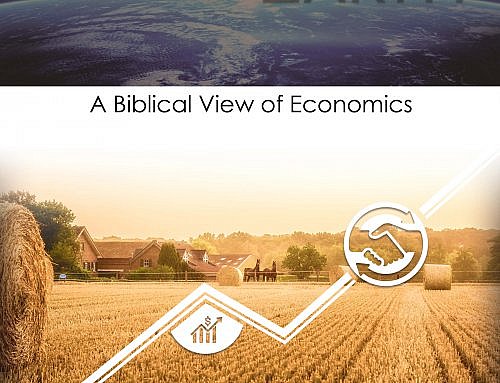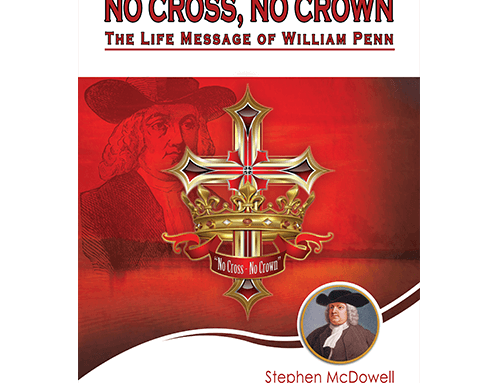The following article is taken from the Introduction of the book by Stephen McDowell, Ruling Over the Earth, A Biblical View of Civil Government. Order a copy here.
The topic of civil government has been largely ignored by most of the evangelical community in the past century. Unlike in the previous centuries, especially during the founding era of America, it is rarely the topic of sermons. Many pastors avoid any talk of government and politics, whether from fear of offending church members or belief it is not their duty. They were not taught about government in seminary and, therefore, if they do address the issue, it is usually superficially, referencing the thirteenth chapter of the book of Romans saying we must obey the authorities and pay our taxes.
A majority of evangelical pastors believe that the Bible is sufficient to lead people to Christ and to teach them how to live a good moral life. However, it seems they don’t believe the Bible is sufficient to teach God’s people how to fulfill their original God-given mission to subdue and rule over the earth. More than 90% of theologically conservative pastors believe the Bible speaks to all areas of life and addresses specific civil issues facing Christians today (such as abortion, same-sex marriage, immigration, and so forth); yet only 10% of them are willing to address these issues. Because of this lack of teaching a practical biblical worldview, many Millennials see the church as irrelevant.[i]
Many reticent pastors and Christians do acknowledge that God is the ultimate governor and that no one rules except by God’s authority, but then fail to say what we must do, other than to pray and have faith that God will prevail, if those who are governing reject the higher authority of God and rule according to their own worldview. After all, they say, the Bible really does not teach that we are to work to influence government but we are to be about the work of the kingdom, that is, converting souls.
Some pastors’ approach to the topic of government centers on ethics. Some emphasize the attitudes we must have toward other believers who think differently than we do. Avoiding contention, strife, and divisions is certainly biblical and important and should be taught. Yet, it is equally important that pastors teach what the Bible says about government and civil duties. The church is to equip the saints for the works of service, including civil service (rendering to Caesar his due). It is to teach what the Bible says about all of life, including government. Without this instruction Christians will be ill equipped to act rightly and to “do justice” (Micah 6:8).
We need to be instructed in how to act biblically as well as in having correct attitudes. Varying views of church members is not a sufficient reason to avoid the subject. In fact, it is a reason why church leaders should seek out knowledge of the subject and teach the truth of God. God has one view on the subject of government, and His view is correct. Our task is to learn what the Bible says about this important subject so we can adopt His principles and obey His precepts, both personally and nationally.[ii]
I have heard many Christians and pastors say that the Bible gives no specific form of government as the biblical ideal, that the Bible or Jesus did not present a certain kind of government that we are to seek to establish. It is true that there is no systematic teaching on the framework of biblical government. There is also no systematic teaching on many subjects, like the trinity, the doctrine of salvation, heaven, et cetera. Yet, the church has developed and teaches on these “religious” subjects with authority. Similarly we can and should study the principles that the Bible and Jesus teach regarding government for they have much to say on the subject, and, in fact, we will see that the Bible does present principles that support a particular kind of civil government as best.
Rev. Jonathan Mayhew, pastor of Boston’s West Church, preached a sermon in 1750 entitled “A Discourse Concerning Unlimited Submission and Non-Resistance to the Higher Powers” which he knew some would think was “preaching politics, instead of Christ.” He defended his action by citing 2 Timothy 3:16: “‘All Scripture…is profitable for doctrine, for reproof, for correction, for instruction in righteousness.’ Why, then, should not those parts of Scripture which relate to civil government be examined and explained from the desk, as well as others? Obedience to the civil magistrate is a Christian duty; and if so, why should not the nature, grounds, and extent of it be considered in a Christian assembly?”
Mayhew begins his Discourse with the text of Romans 13:1-8, and then explains that civil government has “a moral and religious consideration,” with a divine origin, and hence under the authority of God. He then says:
although there be a sense, and a very plain and important sense, in which Christ’s kingdom is not of this world [John 18:36], his inspired apostles have, nevertheless, laid down some general principles concerning the office of civil rulers, and the duty of subjects, together with the reason and obligation of that duty. And from hence it follows, that it is proper for all who acknowledge the authority of Jesus Christ, and the inspiration of his apostles, to endeavor to understand what is in fact the doctrine which they have delivered concerning this matter. It is the duty of Christian magistrates to inform themselves what it is which their religion teaches concerning the nature and design of their office. And it is equally the duty of all Christian people to inform themselves what it is which their religion teaches concerning that subjection which they owe to the higher powers.[iii]
This book is a tool to assist you in fulfilling Mayhew’s admonition of learning what the Bible teaches about the important subject of civil government. As those who are to equip the saints, pastors and church leaders must understand a biblical view of government and teach it to their members. To do less is to not only be disobedient, but to leave this important sphere in the hands of those who reject the authority of God and would establish man upon the throne as the source of all authority and law.
The Bible is authoritative in all it says,[iv] and the Bible speaks to all of life. It most certainly gives us much information about that earthly government that has the power to affect every area of our lives. We should fulfill our duty to learn what the Bible says about government, teach it to others, and live out its implications every day.
End Notes
[i] James L. Garlow and David Barton, This Precarious Moment, Six Urgent Steps that Will Save You, Your Family, and Our Country, Salem Books, 2018, pp. 218-219.
[ii] Developing a biblical worldview is important for every area of life. For example, as we approach child training and discipline we need to know about having biblical attitudes toward our children, but parents also need guidance on how to provide biblical discipline. Christians have different views on how to train and discipline children, just as they have different views on government. That being so does not mean the church should avoid the subject and let everyone decide on their own how to act. If the church does not have a clear biblical position on certain topics or recognizes God allows for liberty on certain issues, the church should at least teach a variety of views in order to give believers a framework to evaluate and choose. The problem of some churches is they will not teach on the subject at all and, hence, many folks have no access to ideas to form a conviction.
[iii] Jonathan Mayhew “A Discourse Concerning Unlimited Submission and Non-Resistance to the Higher Powers,” Boston: Printed by D. Fowle and D. Gookin, 1750, John Wingate Thornton, The Pulpit of the American Revolution, Boston: Gould and Lincoln, 1860, pp. 47, 53-54.
[iv] The author presupposes that the Bible is the divine, inspired, inerrant Word of the living God. For proof of this foundational Christian belief see Stephen McDowell, The Bible, Divine or Human? Evidence of Biblical Infallibility and Support for Building Your Life and Nation on Biblical Truth, Charlottesville: Providence Foundation, 2016. In addition, the author believes the Bible gives guidance for all areas of life, including civil government, and that we have a duty to find out what God says about government and then seek to act upon His Word.





